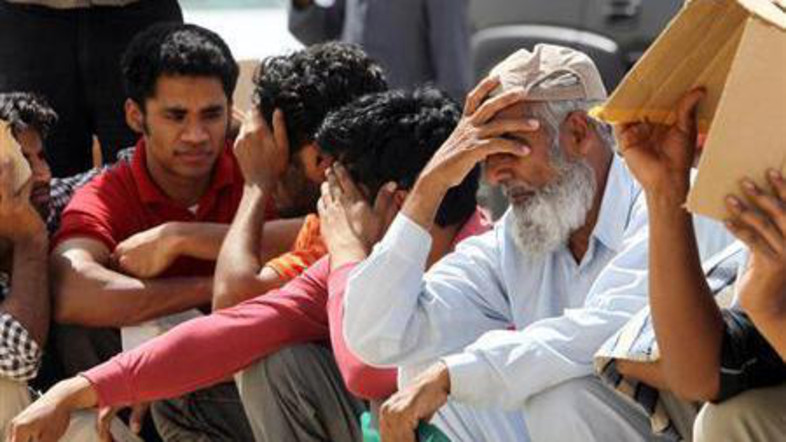Manama: Foreigners staying illegally in Saudi Arabia were on Thursday warned that they had now only 60 days to avail of a grace period to regularise their situations.
“All those who are breaking the rules regarding residence and work permits should quickly benefit of the royal order and pardons granted to them under a special programme,” the Passport Directorate General said. “The grace period will end in two months. Foreigners keen on benefiting from it should contact any of the 75 centres across the kingdom to legalise their stay.”
In March, illegal expatriates were warned that they would have to pay fines of up to 100,000 riyals if they failed to regularise their situation or leave the country within the 90-day amnesty.
“This is a chance that may not come again for violators and they should seize it,” Sulaiman Al Yahya, the head of Passports, said. “Under the amnesty, they are exempted from paying fines for breaking the law and from being fingerprinted which is used to bar deportees from re-entering the kingdom. Those who are caught following the amnesty will pay fines ranging from 15,000 to 100,000 riyals,” he said.
On March 19, Crown Prince Mohammad Bin Nayef announced the “Nation Free of Violators” campaign to help undocumented expatriates regularise their status.
Under the amnesty that started on March 29, any foreigner who was breaking the residency and work laws and regulations will be able to leave the kingdom without paying any fines or being subject to legal action.
The violator will also be able to return later to work legally in Saudi Arabia since he would not go through the fingerprinting process usually applied to deportees who would not be allowed back into the kingdom.
According to Al Yahya, the “Nation Free of Violators” campaign targets foreigners who have overstayed their visit or work permits or entered Saudi Arabia with Haj, Umrah, visit or transit visas and failed to leave before their expiry. It also applies to those who have not renewed their permits and those who entered the kingdom illegally.
“Several government ministries and agencies are actively involved in the campaign and there will be no leniency towards violators,” he said.
Mansoor Al Turki, the spokesperson for the Ministry of Interior, said that those who had broken the residency and work laws should settle their personal rights and dues before they start the online departure process through the websites of the labour ministry or the passport department.
“Those who have overstayed their Haj, Umrah, visit or transit visas do not have to contact any government agency or authority and may head to any exit point and leave the country,” he said.
“Foreigners who have absconded and have been reported as missing by their employers should contact the nearest expatriates’ department to complete the departure process.”
In 2013, then King Abdullah Bin Abdul Aziz gave a 90-day grace period to allow foreigners staying illegally in Saudi Arabia to legalise their status or leave the Kingdom without any penalty or fine.
According to the General Authority for Statistics, more than 12 million of the 32 million people who live in Saudi Arabia are foreigners. No figure of how many were staying illegally was available.




